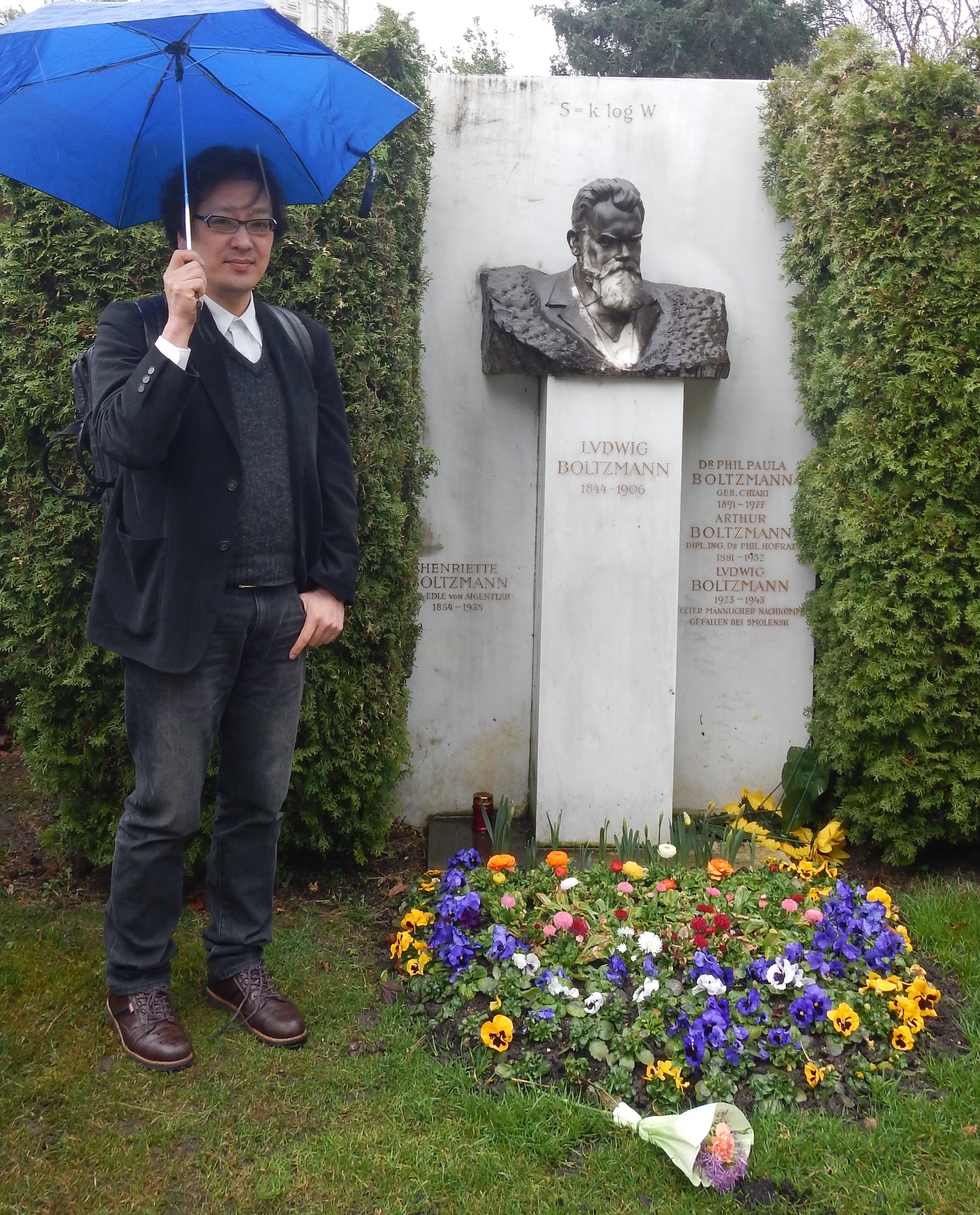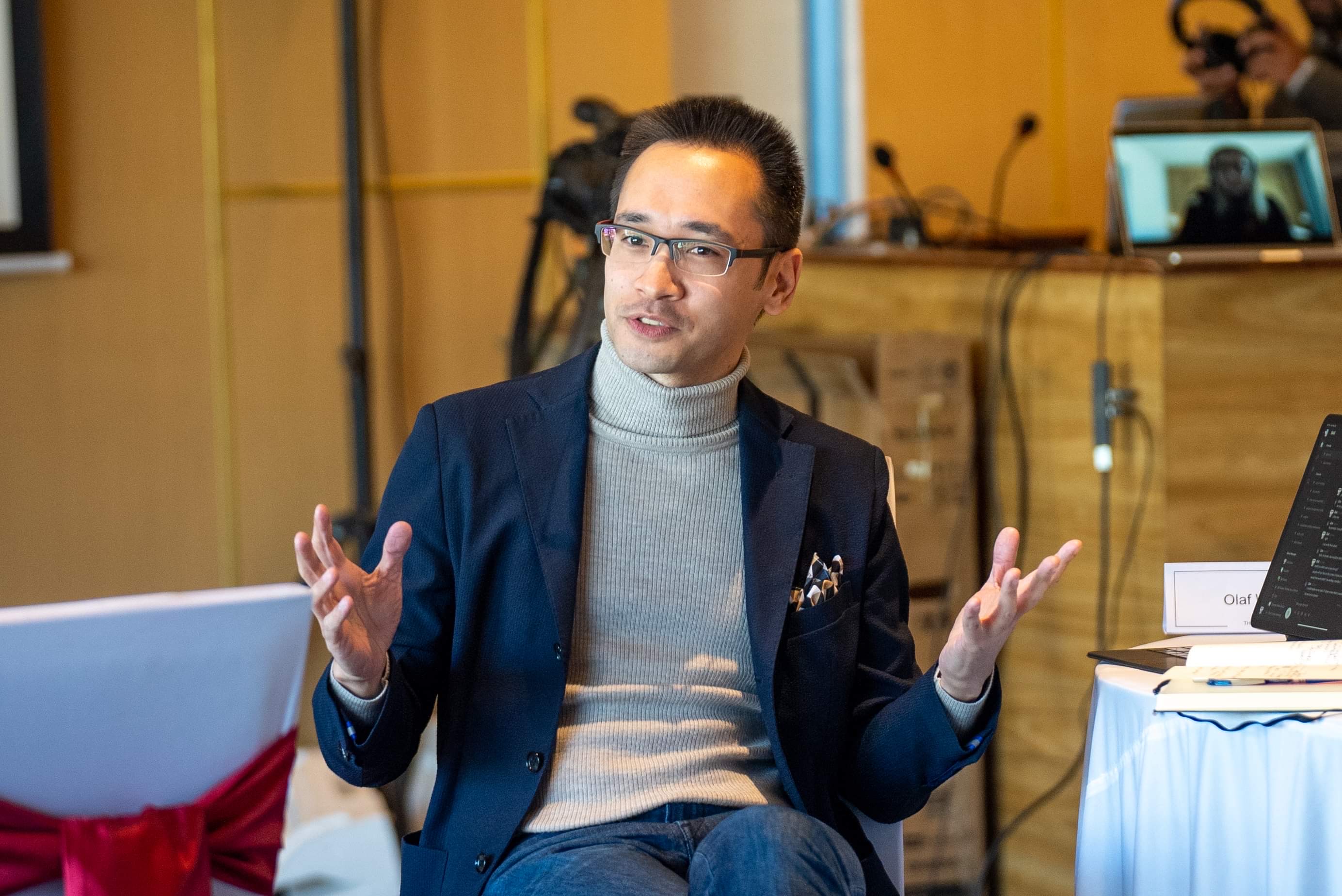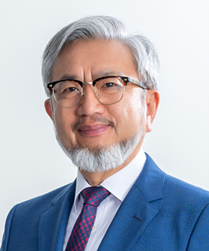Plenary Speakers
January 21, 2026, 11:00 - 11:50

Department of Complex Systems Science, Graduate School of Informatics, Nagoya University
In this talk, I will explore how statistical mechanics, when integrated with microbial time-series data, can reveal the hidden structure and complex dynamics of evolutionary processes in microbial communities. I will begin by presenting key theoretical results derived from statistical physics approaches to evolving complex systems. This will be followed by a case study in which we inferred interaction parameters of a Lotka–Volterra-type model from time-series data of operational taxonomic unit (OTU) abundances in the mouse gut microbiome. The inferred interaction networkexhibited characteristic structural features, and long-term simulations based on the inferred parameters showed quasi-periodic chaotic behavior—suggesting the prevalence of high-dimensional chaos in natural microbial ecosystems. Further, simulations using generalized evolutionary models based on the same parameters produced more realistic OTU dynamics, bridging theoretical modeling with empirical observations. I will also present recent findings from our participation in the Moonshot Research and Development Program, Cabinet Office, Japan, which targets an 80% reduction in methane emissions from cattle by 2050. Our analysis of OTU-level rumen microbiota data has provided new insights into the ecological and evolutionary underpinnings of microbial methane production. Overall, this talk demonstrates how the interplay between statistical mechanics and microbial data can illuminate the network structure and chaotic dynamics that drive microbial evolutionary processes.
Biography:
Kei Tokita is a Professor in the Department of Complex Systems Science at the Graduate School of Informatics, Nagoya University, where he also serves as Vice Dean since 2023. He received his Dr. Sci. in theoretical physics from the University of Tokyo in 1994. He began his academic career as an Assistant Professor in the Department of Physics at Osaka University (1994–2000), and later served as Associate Professor at the Cybermedia Center (now the D3 Center) at Osaka University (2000–2013). He was a Visiting Scholar at Harvard University twice—first in the Department of Biology and Chemistry (Shakhnovich Lab, 1996–1998) and later at the Program for Evolutionary Dynamics (Director: Prof. Martin Nowak, 2003–2004). His research centers on mathematical modeling of complex systems, with a particular focus on ecological and evolutionary dynamics. He has published extensively on community ecology, microbial population dynamics, and evolutionary game theory, using tools from nonlinear dynamics, statistical physics, and network theory. From 2023 to 2024, he served as President of the Japanese Society for Mathematical Biology. His recent work explores chaotic behavior in microbial ecosystems and the controllability of ecological networks using data-driven approaches. With an academic background that bridges physics, biology, and informatics, he seeks to uncover universal principles that govern the organization and dynamics of complex biological systems.
January 21, 2026, 15:00 - 15:50

Cross Labs
Complex intelligences—biological, artificial, and hybrid ensembles—can respond to stress by fragmenting control among plural agents. While this adaptive architecture successfully distributes functions and responsibility, it can also complicate coordinated action planning, negotiation of control, integration of partial experiences, and the maintenance of coherent problem-solving strategies. The most challenging—yet crucial—information to share among agents is tacit knowledge (Polanyi, 1958): inherently embodied, context-dependent, experiential insights not easily codifiable into explicit representations. This talk explores how cross-substrate communication—translating internal knowledge across diverse contexts, physical constraints, and embodiments—can enable fragmented systems to coordinate, and sustain high levels of problem-solving. Drawing on examples from robot collectives, cognitive-linguistic effects, technobiological hybrids, but also human minds under chronic stress, and brain–machine study cases, we consider how plural architectures can inform advances in cognition-assistive technologies. We also anticipate what may come after superintelligences: can we fluidly reconfigure identity while preserving coherence, with the “driver” dynamically shifting between machines, humans, and hybrid constellations of diverse other beings?
Biography:
Olaf Witkowski is a pioneering leader in exploring the language of artificial minds. He serves as Founding Director of Cross Labs, an innovative AI research institute in Kyoto dedicated to diverse intelligences and compassionate technology. He currently holds multiple influential positions, including President of the International Society for Artificial Life (ISAL) and Board Director at leading AI company Cross Compass Ltd. He holds a PhD in Computer Science from the University of Tokyo, is an alumnus member of Princeton’s Institute for Advanced Study, and serves as external faculty at various universities in Japan. He has co-founded research ventures across three continents, including YHouse Inc. in New York—a nonprofit focused on consciousness and AI—the Center for the Study of Apparent Selves in Kathmandu, which explores Buddhist philosophy and AI ethics, and the newly established Artificial Life Institute in Kyoto.
January 22, 2026, 11:00 - 11:50

Founder & CEO, ROEN Surgical Inc. / Emeritus Professor, KAIST
Flexible Endoscopic Surgery Robot “Zamenix”
The surgical robot system, such as da Vinci, has changed the paradigm of laparoscopic surgery by proving the value of robotic precision, dexterity, and ergonomics. Today, the next paradigm shift is emerging—minimum-invasive and non-invasive endoluminal surgery enabled by flexible endoscopic robot systems. Zamenix is a robotic endoluminal surgery system for kidney stone treatment that teleoperates a flexible ureteroscope, a laser fiber, and a stone basket. Zamenix enables precise, stable teleoperation of an endoscope and surgical instruments, offering functions for laser fragmentation/dusting of stones and retrieval/suction of fragmented stones. It provides intuitive remote manipulation without the need for an X-ray protection gown. It includes features such as automation of repetitive tasks, detection of oversized stones, and respiratory-motion compensation via AI technology. A first-in-human trial in Korea demonstrated favorable stone-free rates with minimal complications. Since its launch in 2024, 15 units have been installed in leading university hospitals, and more than 300 clinical cases have shown the efficacy and efficiency of robotic surgery. During the commercialization journey of medical devices, we have gained valuable start-up business experience by overcoming challenges related to regulatory approvals, safety testing, documentation, funding, obtaining a reimbursement code, manufacturing to high-quality standards, and sales.
The Zamenix journey illustrates how academic research can translate into clinical impact and commercial success. The author hopes our experience will inspire robotic researchers to pursue the commercialization of their valuable research results.
Biography:
Dong-Soo Kwon is Emeritus Professor of the Department of Mechanical Engineering of KAIST and CEO of ROEN Surgical, Inc. He received the B.S. degree in 1980 from Seoul National University, the M.S.E. degree in 1982 from KAIST and the Ph.D. degree in 1991 from Georgia Institute of Technology, USA. He has been the vice President of Korean Innovative Medical Technology Society since 2019, Honorary chairman of the Korean Society of Medical Robotics, Honorary Chair of IEEE Ro-MAN 2023, and was President of Asian Society of Computer Aided Surgery (ASCAS), the program Chair of IEEE/RSJ international Conference on Intelligent Robots and Systems 2016, an academician at the National Academy of Engineering of Korea(NAEK), and IEEE Fellow.
He received the 2023 Distinguished Service Award from the IEEE Robotics and Automation society, EAU2023 Best Video Abstract Awards First Prize, IROS Harashima Awards of Innovative Technologies in 2022, Top 10 Mechanical Engineering Technology of the Year 2019 from KFMES, Best Application Award and overall winner from Hamlyn Surgical Robot Challenge 2018, and the Harashima Mechatronics Award from ICROS 2009 and JTCF Novel Technology Paper Award from Amusement Culture from IROS in 2010. He also received double Korea Presidential Commendation (2018, 2022).
 AROB-ISBC 2026
AROB-ISBC 2026